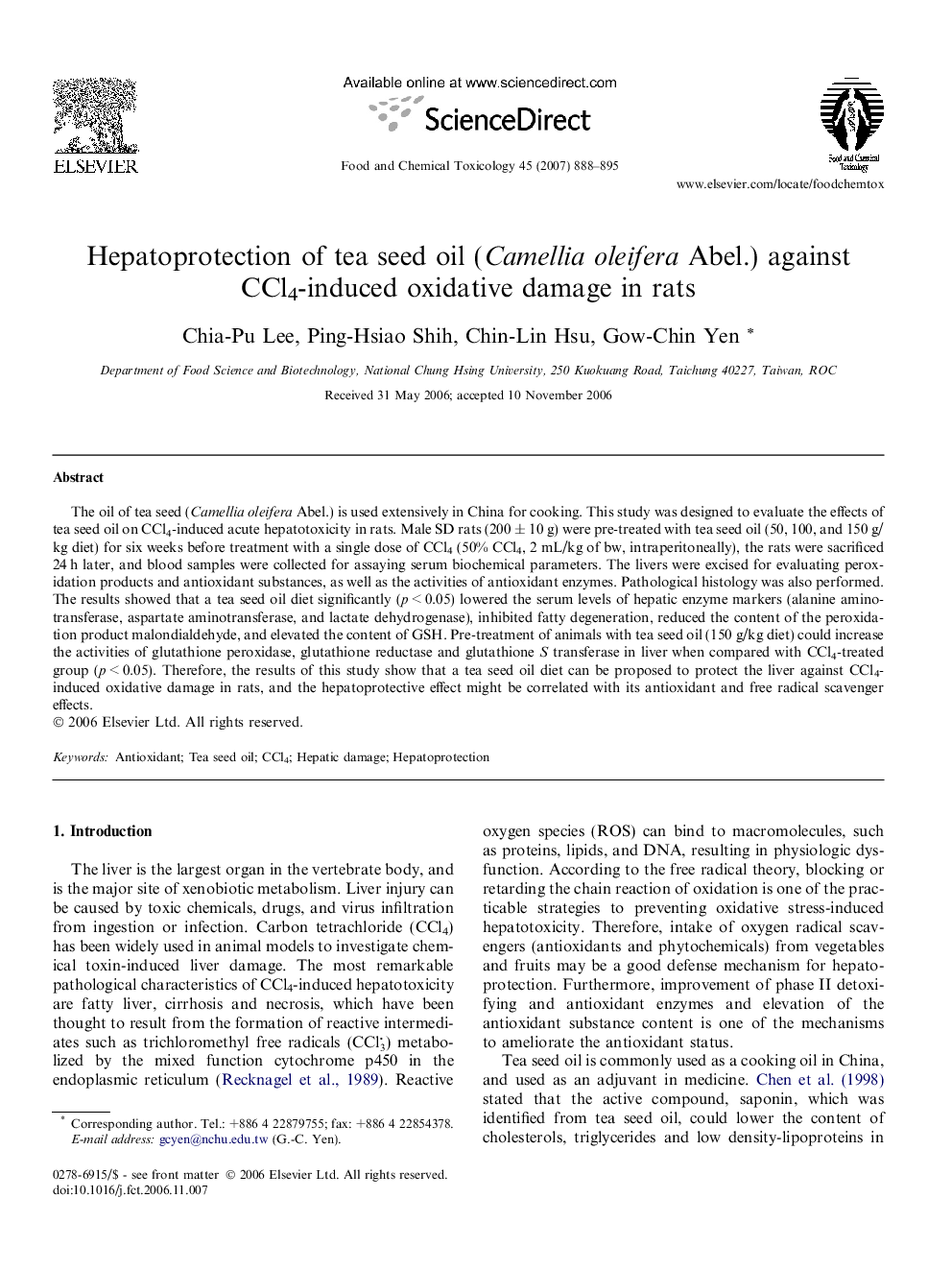| Article ID | Journal | Published Year | Pages | File Type |
|---|---|---|---|---|
| 2588250 | Food and Chemical Toxicology | 2007 | 8 Pages |
The oil of tea seed (Camellia oleifera Abel.) is used extensively in China for cooking. This study was designed to evaluate the effects of tea seed oil on CCl4-induced acute hepatotoxicity in rats. Male SD rats (200 ± 10 g) were pre-treated with tea seed oil (50, 100, and 150 g/kg diet) for six weeks before treatment with a single dose of CCl4 (50% CCl4, 2 mL/kg of bw, intraperitoneally), the rats were sacrificed 24 h later, and blood samples were collected for assaying serum biochemical parameters. The livers were excised for evaluating peroxidation products and antioxidant substances, as well as the activities of antioxidant enzymes. Pathological histology was also performed. The results showed that a tea seed oil diet significantly (p < 0.05) lowered the serum levels of hepatic enzyme markers (alanine aminotransferase, aspartate aminotransferase, and lactate dehydrogenase), inhibited fatty degeneration, reduced the content of the peroxidation product malondialdehyde, and elevated the content of GSH. Pre-treatment of animals with tea seed oil (150 g/kg diet) could increase the activities of glutathione peroxidase, glutathione reductase and glutathione S transferase in liver when compared with CCl4-treated group (p < 0.05). Therefore, the results of this study show that a tea seed oil diet can be proposed to protect the liver against CCl4-induced oxidative damage in rats, and the hepatoprotective effect might be correlated with its antioxidant and free radical scavenger effects.
